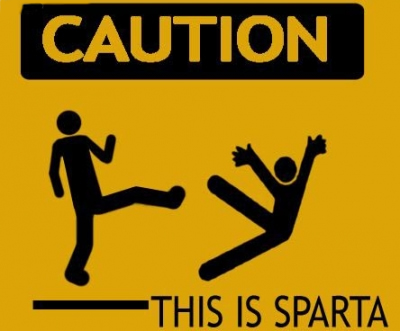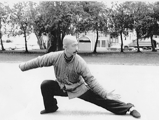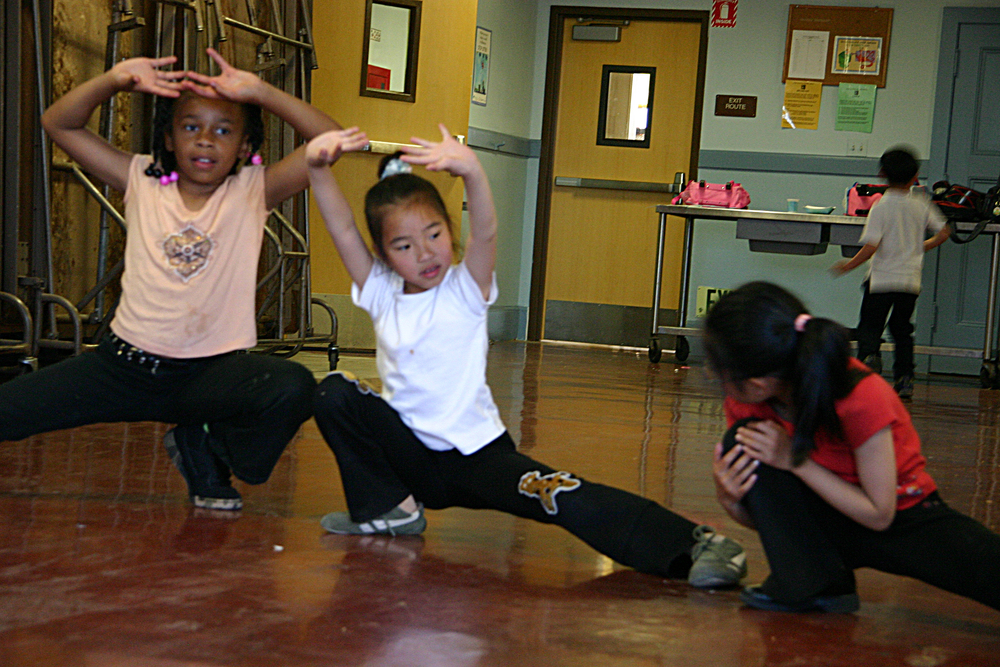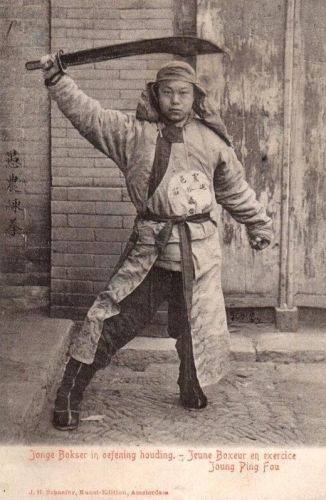Standing Still
/ Let's get some things straight. There are standing postures in all Chinese Martial Arts. The physicality of Chinese theater comes out of these same stances. Many different religious traditions in China require participants to hold specific stances during ritual.
Let's get some things straight. There are standing postures in all Chinese Martial Arts. The physicality of Chinese theater comes out of these same stances. Many different religious traditions in China require participants to hold specific stances during ritual.
The term most often used to refer to standing postures these days is zhan zhuang. That term does not apparently make any distinctions between difficult jibengong basic training stances which are often physically difficult and painful for beginners, and standing meditaion which is only difficult because people won't let themselves do it.
 Also, zhan zhuang is probably not the correct term for describing these standing practices used in theater and ritual. I think the term comes from Wang Xiangzai, if anyone knows different please let me know.
Also, zhan zhuang is probably not the correct term for describing these standing practices used in theater and ritual. I think the term comes from Wang Xiangzai, if anyone knows different please let me know.
In the martial arts world, difficult standing postures are a key part of jibengong, or basic training. After a student can do a falling stance with their butt on their ankle (feet parallel, one leg all the way straight, the other all the way bent), then I have them hold the stance with their hips (measured at the greater trochanter) one inch below the level of the knee. After they get that I have them hold it with the hips one inch above the level of the knee. Then there are arm positions to add, and a few other tricks. There are instructions like this for every posture in Taijiquan, Shaolin, or Xinyiquan. Students often rebel, they don't like the pain. They think I'm some kind of sadist, when the truth is I love them, they are my babies.
 There are a whole bunch of easier postures that are used for meditation, horse stance, post stance, and just simple knees bent, feet shoulders width apart, back straight. When I say meditation I mean an hour of stillness. (If the stance is on one leg, then it is a half-hour on each leg.) Why an hour? Why not? Do you have some place to be? Because if your mother is in the hospital or something you should probably get over there! Or if you have a game of Frisbee golf to get to...at 7 AM...hey that's important stuff!
There are a whole bunch of easier postures that are used for meditation, horse stance, post stance, and just simple knees bent, feet shoulders width apart, back straight. When I say meditation I mean an hour of stillness. (If the stance is on one leg, then it is a half-hour on each leg.) Why an hour? Why not? Do you have some place to be? Because if your mother is in the hospital or something you should probably get over there! Or if you have a game of Frisbee golf to get to...at 7 AM...hey that's important stuff!
Frankly I've heard countless explanations for why an hour is good. Yawn. This is an experimental tradition, do your own experiments, find your own answers. I've heard even more excuses from martial arts teachers about why they don't do standing practice. Yawn.
The heart of the problem is in the framing. If people don't understand that martial arts were fully integrated into religious ritual, meditation, and theater they are likely to come up with some argument about how long periods (really..., an hour is long?) of standing are not utilitarian. Yawn. Let's face it, if you haven't lived in a violent world with a violent lifestyle where you had to use moral (or immoral) acts of skillful force every few days you don't even know what utilitarian is.
Here we go. Movement is communication. We are social animals. The tiniest movements are communicative. If you hold your pinky out when you drink a beer you are communicating something. Even if you are alone. That's why people tend to freak out when they find out someone has been secretly watching them, even if it was just for a couple of minutes. After going into complete solo retreat far away from other people for long enough, upon returning to society, one will be shocked by how much physical and mental attention goes into managing where everyone else is positioned, how they are moving, and what all those movements mean. In other words, normal everyday human activity is intense, we are just used to it. (Perhaps we could call this material "unconscious" or "sub-conscious" but...yawn...there is a lot of baggage there, and I like to travel lite.)
 In the theater communication is king! and queen, and the forest and the grass and the mountains and the naked hairy wildwoman, etc. Every movement matters. The quality of every movement matters. On the stage, everything gets seen (unless it is intentionally hidden). In Chinese theater there is an expression, "The actor wears the scene on his body!" (jing jiuzai yanyuan shenshang). Yep. If a person's body is going to do this well, it requires the capacity to add and subtract tiny little details of movement. That capacity comes from being physically and mentally quiet. Standing still is key.
In the theater communication is king! and queen, and the forest and the grass and the mountains and the naked hairy wildwoman, etc. Every movement matters. The quality of every movement matters. On the stage, everything gets seen (unless it is intentionally hidden). In Chinese theater there is an expression, "The actor wears the scene on his body!" (jing jiuzai yanyuan shenshang). Yep. If a person's body is going to do this well, it requires the capacity to add and subtract tiny little details of movement. That capacity comes from being physically and mentally quiet. Standing still is key.
Ditto for religion. Who is watching us? Gods, ghosts, demons, our imaginary ancestors (hi grandma); what is it they are seeing us do? What is agency? Is this my movement or am I just walking like John Travolta in "Saturday Night Fever" because that was my favorite record album when I was 10 years old. Free will? Maybe, but then why do you put your pinky out when you are drinking beer?
If our conduct is connected to our morality, then how we move is a profoundly moral issue. This is a core concept of all Chinese religious expression, especially Daoism and Confucianism, yet there is hardly a better theological explanation for why Buddhist monks practiced martial arts at Shaolin temple.
